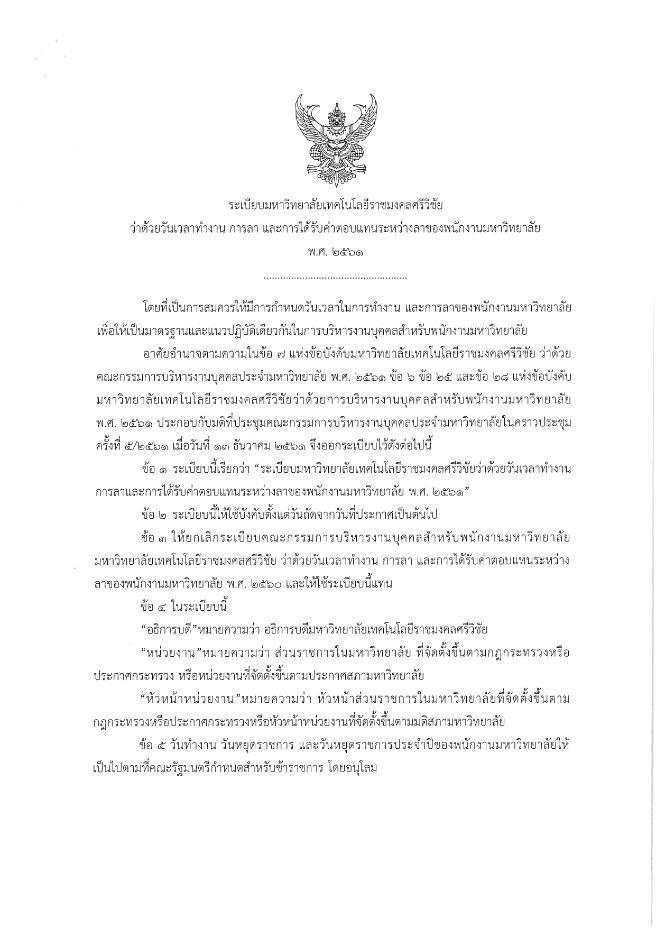Reporters: Asst.Prof. Saowanee Chaipech, Dr. kittichon Utaynapun, Asst.Prof. Sudanai Krualee, Mr. Ugrit Chammari
Evidence Date: during 2023 Jan-Dec
Related SDGs:

Related Indicators: 12.3
Details:
The announcement from Rajamangala University of Technology Srivijaya on sustainable consumption and production since A.D.2022. Consequently, the waste reduction and separation measures within the institution are defined as follows:
1. Prioritizing the reduction of consumption to necessary levels, practicing conservatism, and avoiding wasteful consumption.
2. Embracing the concept of reusing items or products.
3. Engaging in the separation and collection of materials for recycling processes.
4. Enforcing waste separation measures to facilitate appropriate and effective waste management, thereby preventing the reintegration of segregated waste.
5. Installing clear signage to designate the different types of recyclable waste in waste bins, enabling users to dispose of their waste correctly. Furthermore, the university administration has also tasked individuals with establishing a system for monitoring, tracking, and assessing the waste reduction and separation within the university, with a data collection, recording, and reporting process in place.
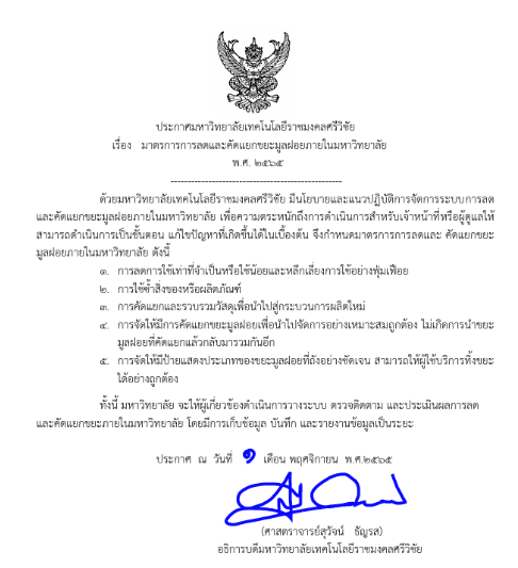 |
Plastic Waste Management through the Collaboration of Rajamangala University of Technology and Gulf of Thailand Coastal Communities at Khanom District, Nakhon Si Thammarat Province
Currently, the global waste crisis is impacting lives worldwide. How should we handle the waste problem we face today? Who is responsible for it? The answer is that it’s everyone’s responsibility, starting with the manufacturers of plastic bottles, the companies that use them, and finally, the consumers who need to dispose of them properly. All stakeholders—upstream, midstream, and downstream—must share responsibility through laws, regulations, or joint agreements, with government agencies facilitating these efforts. The Department of Health has assessed health impacts through its Health Forecasting Group, finding that plastic bags are the most commonly used plastic item at 72.64% daily, followed by plastic bottles at 57.71%, and straws at 43.53%. Analyzing daily plastic use, it was found that most people use 1–2 pieces of plastic per day (49.3%), followed by 3–4 pieces per day (26.8%). Most of this plastic, primarily single-use containers, is obtained from convenience stores (42.8%), restaurants (42.0%), coffee shops, and local markets (33.8%). Plastic waste, a prevalent type of waste, raises questions on recycling and environmental sustainability. To tackle this issue, faculty and students from Rajamangala University of Technology Srivijaya have formed the “Pink Dolphin” team and established a Facebook page, “Help Separate Waste for Khanom Beach,” to promote plastic waste management. In 2023, students from the Civil Engineering program joined the Pink Dolphin team to sort plastic bottles collected from within the university and outside sources such as the Khanom Power Plant, Tha Kham community enterprises, Wat Khaokiriwong School, and donors via mail. They are currently running the “One Month, One Time, One Hour” volunteer program, where they collect plastic bottles monthly, sorting and transforming them into products like paving blocks, chairs, coasters, and tables. For example, they recycle bottle caps and rings
by heating and reshaping them into chair mats, a project they developed in 2023, recognized as a student innovation with certificate RUTS TLO 2401007 in 2024.
Based on data collected by the Pink Dolphin team, the district of Khanom in Nakhon Si Thammarat Province generates approximately 200 kilograms of plastic waste per month. The summary is as follows:
- Amount of plastic waste generated: 200 kilograms per month (2,400 kilograms per year)
- Amount of plastic waste recycled: 64 kilograms per month (768 kilograms per year) to create various products
- Amount of waste sent to landfill: 136 kilograms per month(1,632 kilograms per year)
Comparing 2022, before the Pink Dolphin team was established, to 2023, they have achieved a 32% increase in waste reduction and recycling for the Khanom district in Nakhon Si Thammarat Province.
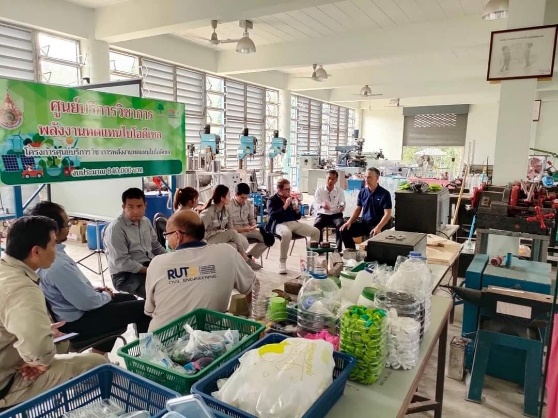 |
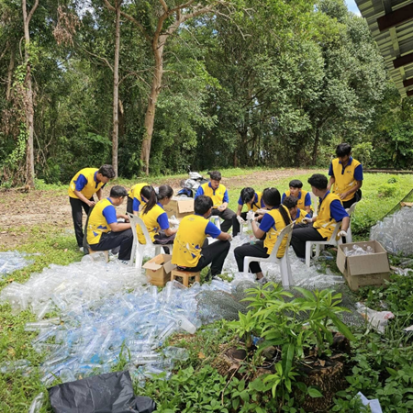 |
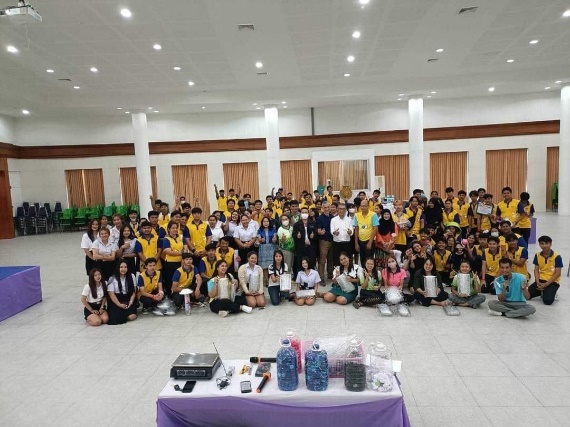 |
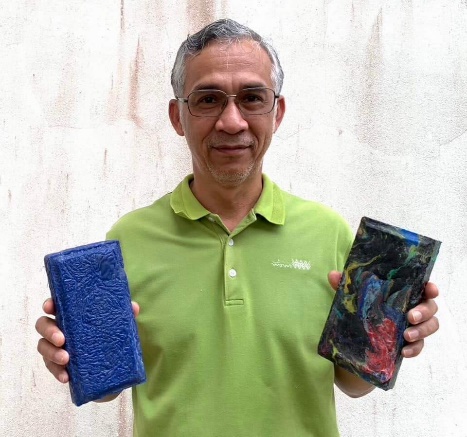 |
https://www.facebook.com/share/p/A5TkhtZJZSos2Dtp
https://www.facebook.com/share/p/HvKtRc6S3a95r64K
https://www.facebook.com/share/p/i8EnndcUGwYHg5ME

